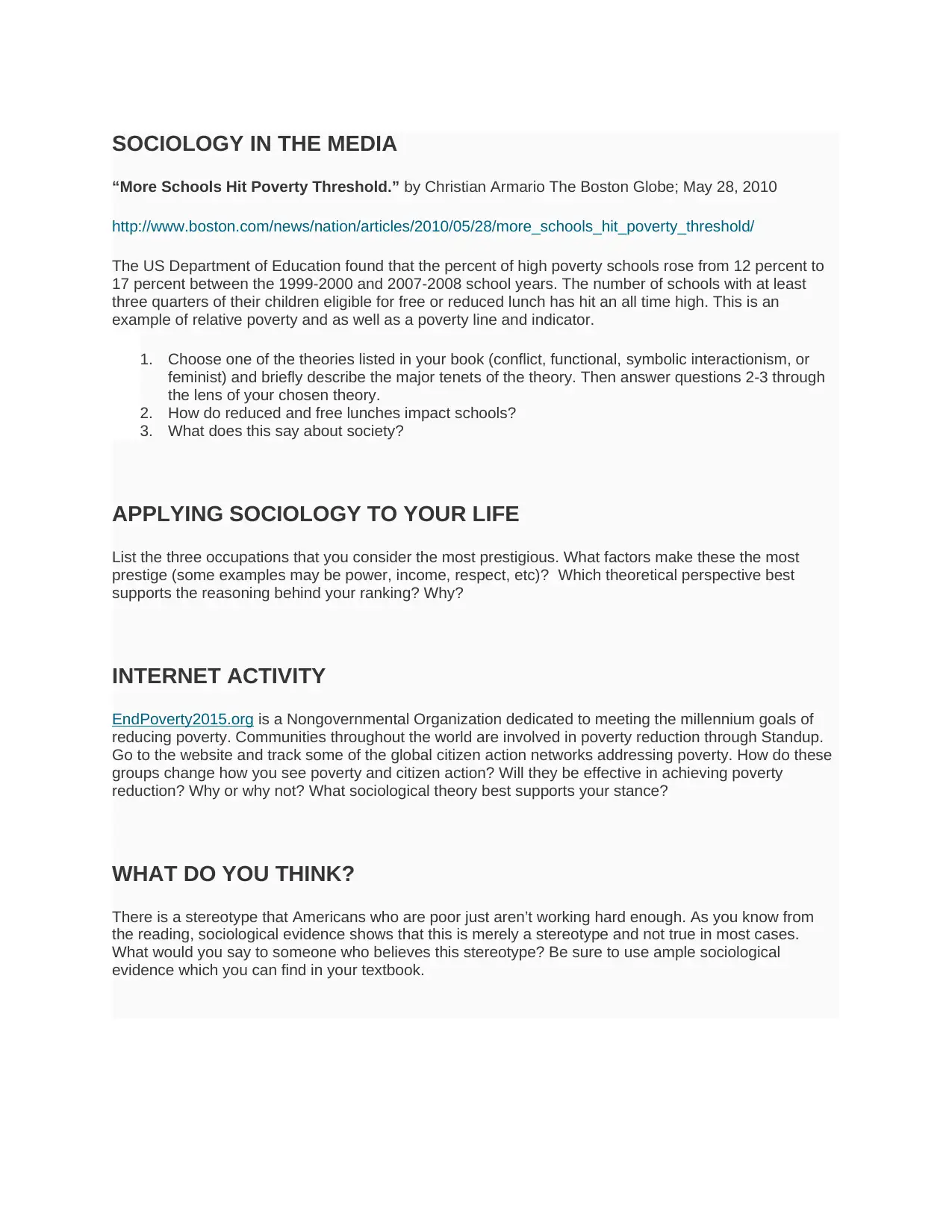Applying Sociological Perspectives
VerifiedAdded on 2019/09/20
|1
|354
|181
Essay
AI Summary
The assignment content discusses sociology in the media, focusing on poverty rates in schools and its impact on society. It also applies sociological theories to real-life situations, such as occupations that are considered prestigious and global citizen action networks addressing poverty.
Contribute Materials
Your contribution can guide someone’s learning journey. Share your
documents today.
1 out of 1
![[object Object]](/_next/static/media/star-bottom.7253800d.svg)






